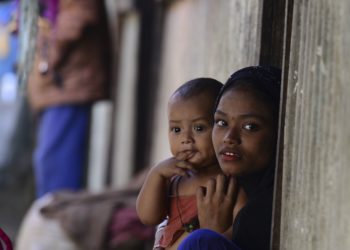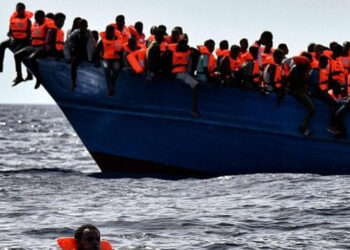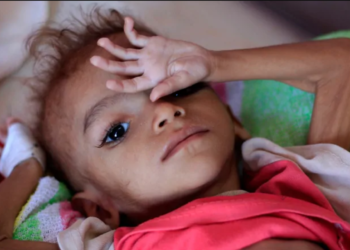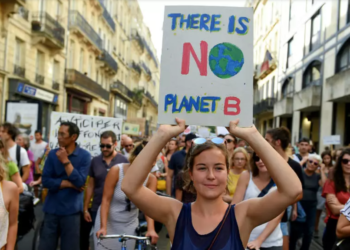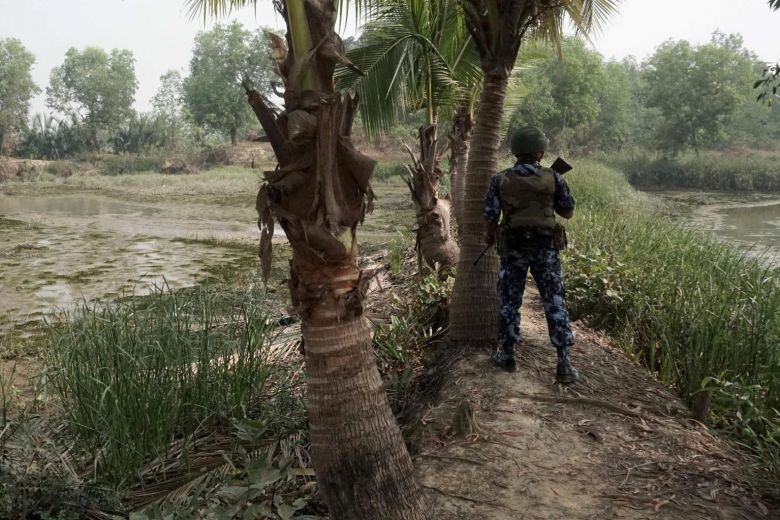When a Syrian toddler washed up to the banks of Aegean Sea two years ago, the harrowing picture sent shockwaves across the globe. The picture was placed on front pages of almost every newspaper in the world, highlighting the treacherous path refugees had to go through.
As if to illustrate the same price many refugees fleeing violence had to pay, a 16-month old baby was pictured floating in the river on the Myanmar-Bangladesh border. That photo, however, went largely unnoticed. Only a few countries protested in a muted fashion.
More than 18,000 Rohingya Muslims took shelter in Bangladesh and hundreds were killed in the latest bout of violence between Myanmar troops and rebels in Rakhine state amid growing international concerns for civilian safety.
The International Organization for Migration (IOM) said on Wednesday nearly 18,500 people, mostly women and children, fled to Bangladesh, fleeing the violence. U.N. officials put the number at 8,700.
“There are still thousands of people in no-man’s land and we have no access to that area,” Peppi Siddiq, a spokesperson for the Organization told BBC.
The latest round of violence broke out when a group of rebels attacked dozens of police stations and military posts last week.The attacks were launched by Arakan Rohingya Salvation Army (ARSA), a self-proclaimed rebel group. The skirmish later devolved into large-scale clashes, igniting a counter offensive from Myanmar troops in the Rakhine state, leading to the displacement of thousands of civilians.
United Nations Commissioner for Human Rights Zeid Ra’ad Al Hussein condemned insurgents for attacks on the security forces but also urged the Myanmar army to exercise caution and employ proportionate response.
He rebuffed claims by Nobel Peace Prize laureate Aung San Suu Kyi who accused international aid workers of abetting “extremist terrorists” and even supporting the attacks. The Burmese leader’s depiction of the events in pure security terms and her deference of the resolution of the conflict to the military dismayed international community. Disappointment after her first year in power gave way to a rigorous questioning of her democratic credentials.
Mr. Hussein regarded such statements as irresponsible and said they only serve to increase fears and the potential for further violence.
“This turn of events is deplorable. It was predicted and could have been prevented,” he said. “Many are still waiting to cross the border or hiding in mountainous or forested areas.”
A report by Human Rights Watch (HRW) said on Tuesday that satellite photos show widespread burning in 10 areas of northern Rakhine since October of last year when clashes between security forces and ARSA insurgents relapsed into a new escalated phase.
“Unfortunately, what we feared appears to be occurring. Decades of persistent and systematic human rights violations, including the very violent security responses to the attacks since October 2016, have almost certainly contributed to the nurturing of violent extremism, with everyone ultimately losing,” Mr. Hussein said in a statement.
Rohingya Muslims who somehow made it to Bangladesh reveal the depth of horror they endured during their escape. Eyewitness accounts point to a deliberate and systematic targeting of civilians.
The international community’s calls for halting the army operation went unheeded. The situation gets worse every day, with the observers of the conflict expressing fears over signs of a large-scale ethnic cleansing amid continuing targeting of Muslims by the army.
Rohingya Muslims — Forgotten Community
“What is paramount from a human rights perspective is that everyone — the government, the international community, and any armed groups — prioritize civilian protection,” Tyler Giannini, Co-Director of Harvard University’s International Human Rights Clinic, told The Globe Post.
“The Annan Commission has identified underlying causes that need attention to de-escalate the situation and achieve a more sustainable solution so that human rights abuses do not continue to recur,” he said.
The U.N. has also found itself at the center of debates. For those who closely monitor the unfolding humanitarian tragedy, the U.N. must forcefully take a more active role to arrest the suffering of Rohingya Muslims.
“The U.N. must focus on getting access to the areas where Rohingya are facing persecution. Saying the army won’t let them in, which has long been their excuse, is no longer good enough,” Alastair Sloan, a freelance journalist who extensively wrote on the Myanmar crisis and the situation of Rohingya Muslims, told The Globe Post. “Repeated waves of ethnic cleansing are happening, in my view, and will continue to happen until the U.N. command steps up to the challenge.”
For him, the approach of Myanmar government to the conflict in Rakhine state is not encouraging either for a workable solution.
He said the Myanmar leadership appears to be “obsessed with improving the economy at the expense of human rights.” According to the government’s theory, he noted, “once there are enough jobs to go round they’ll let the Rohingya out of their refugee camps.”
But the unpleasant reality tells a different story. Materialization of such policy, in the view of Myanmar leaders, as Mr. Sloan puts it, would take five or ten years, even longer.
It is a long time given the worsening mood in makeshift camps where Rohingya Muslims are forced by the government to live. “It’s getting very serious. Mental health is a big problem, probably the most serious problem. A lot of the camps are still in emergency shelters, five years on from the crisis,” he said, offering a vivid, wrenching account of the dire conditions under which Rohingya people live.
The abysmal conditions of refugee camps set up for displaced Rohingya Muslims are only one component of a larger conundrum. There is another, and far threatening, problem that keeps Muslims on edge. The toxic and all-embracing hate language of media, lawmakers and Buddhist monks against Muslims set the stage and mood for the potential outbreak of mob violence anytime, any moment.
“From Rakhine nationalist MPs, people right at the top, as well as militant monks elsewhere in the country, even in state owned media sometimes, you hear appalling language about Muslims,” the journalist said.
“The stereotypes are very similar to what is said in the West, what was said before Srebrenica, what is said by Donald Trump. The Rohingya crisis goes to show that rhetoric has consequences. It’s a familiar and poisonous dynamic,” he noted, expressing fears over now emerging signs of possible ethnic cleansing.
The conflict in Rakhine state has remained deadlocked and international efforts have so far failed to sway the Myanmar government’s approach to the problem.
The first episode of violence broke out in 2012, displacing hundreds of thousands of Rohingya Muslims. Adding to the woes and mountain of problems, Bangladesh also refuses to accept fleeing Rohingya, and periodically return refugees to Myanmar where they are not seen as citizens and remain without a status.


